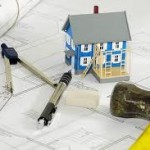
There is no doubt about the fact that home improvements represent a significant financial investment for the average homeowner. They also represent an opportunity to improve one’s quality of life. Along with the economic aspects of the home improvement decision, there are many other areas that you must consider before you move forward with any project.
For example, first you must decide your goal for the project. Are you looking to update outdated or even run-down aspects of your living environment? Are you looking to add quality living space? Or perhaps you are attempting to ready your home for immediate or eventual sale. There is no doubt about the fact that the right improvements can improve the prospects for a successful sale and this could lead to an even more ideal living situation in the long run.
Many projects begin because the homeowner is not planning. Perhaps you have waited too long and something has finally “given out.” If the defect represents a vital functionality of the home (for example, plumbing or air conditioning), you will have no choice but to act quickly. In reality, you may still have many choices as you move forward to correct an urgent situation. For example, if your plumbing is being updated, perhaps it is the ideal time to finish a bathroom in the basement. Or painting of the house may be the right time to add a deck. Even if you are acting out of necessity, there may be plenty of opportunities to combine restorative work with a better quality of life.
Even when you have made a decision regarding the particular improvements you are going to undertake, there will be other issues to be addressed. Are you going to accomplish some or all of the work yourself or hire a contractor? If you do not have a relationship with a home improvement specialist—it is important to check references—including previous customers and the Better Business Bureau. You may be tempted to save money by undertaking work yourself or hiring a “budget” company—but in the long run the quality of work may leave much to be desired. It makes sense to move carefully when dealing with changes to your home, not only because you live there but also because it represents your most significant financial investment.
Another aspect of the decision involves finances. Many do not move ahead with necessary projects because of the cost. Yet, these same homeowners have not spent the time to learn about many new programs available to finance home improvements. In fact, some of these alternatives may put the homeowner in a better financial position because increasing the value of the home will enable them to use equity to pay off more expensive short-term debts.
There is even specific financing that exists for the purpose of financing energy efficiency improvements (EEMs). The typical homeowner spends about $2,000 annually on utility bills and making the home energy efficient not only pays for the project through monthly savings, it adds value to the home in the long run.